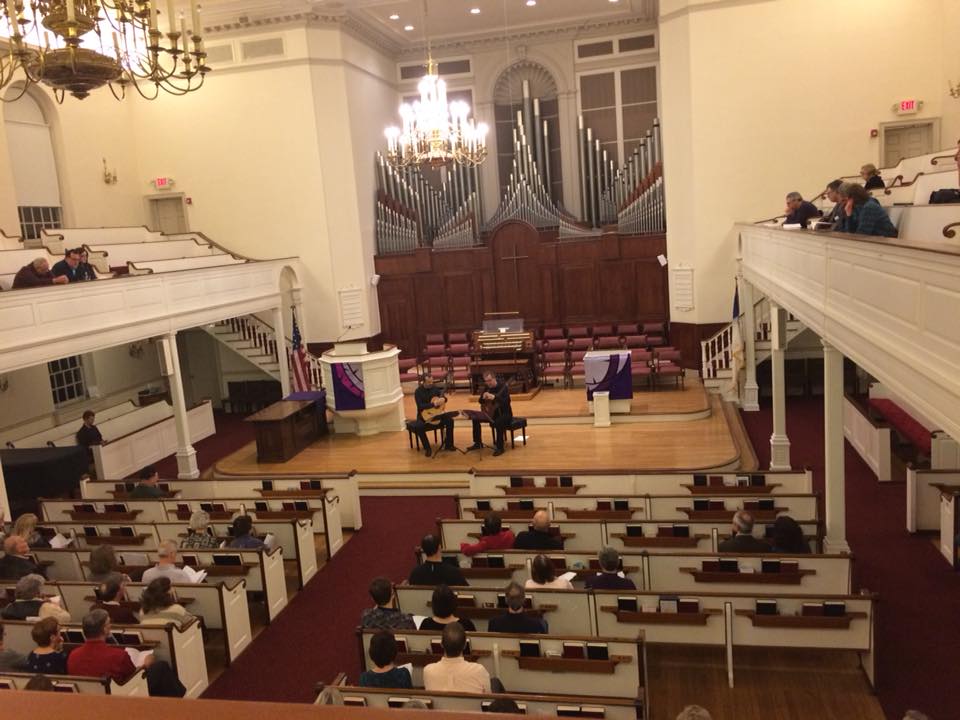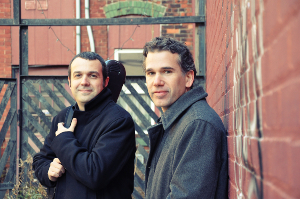by Robert Rollin

The highlight was a remarkably fresh improvisation that began with Avers gently sliding his fingers on the strings to create eerie sounds, as Albert produced penetrating-but-quiet pizzicatos. Next they paired in loud rasguado — flamenco-like strumming. A more lyrical section followed, first with gentle harmonics and later with a louder ostinato pattern answered with accented cross-rhythm triplets.
Avers’ own composition, Mekanisk Rhapsodie (2013) adapted an earlier, flexible length improvisatory multi-media composition commissioned for a tour of Norwegian elementary schools. It incorporated pre-1923 footage by the early silent film creator George Méliès.
The new chamber version begins with an ingratiating loud and fast section using Eastern European 2- and 3-note rhythmic groupings and syncopations. Brief impressionistic descending arpeggios announce the slower and lyrical middle, followed by a codetta using the opening material.
The first of Albert’s Trois Caprices (2010), inspired by Francisco Goya’s painting, “Les Caprices,” begins with a lively syncopated section. An intermezzo-like mood follows, emphasizing the lowest three notes of the Phrygian Mode.
The Second Caprice begins with a slow recitative. Soon the two musicians united in an enormous crescendo. Moody pianissisimo harmonics follow, and rapid statements of the first five notes of the Aeolian Mode dominate the closing texture.
The Third Caprice opens with a presto, and is soon followed by a moderato with interesting octave doublings. A clipped conversation between the two guitars ends with a surprising, soft interrogative phrase.

Serbian-American composer Dušan Bogdaović’s No Feathers On This Frog has much in common with Erik Satie’s witty and cryptically-titled experimental compositions. A dense chordal texture alternates with elegant softer thirds and some octave doublings.
An improvisation entitled Noise employed tapping on the guitars, an Eastern European scale beginning with an augmented second, and changing groupings of twos and threes. It ends with unisons and a rousing staccatisimo chord.
Bulgarian composer-guitarist Atanas Ourkouzounov’s Broken Grooves and Serbian composer-guitarist Goran Ivanovic’s Ethno Dance closed the concert. Both used the aforementioned new guitar techniques and featured Eastern European rhythms.
The Duo ended with their own improvised encore, a popular sounding, fast-moving piece with flashy bright colors. At its conclusion the audience burst into appreciative applause.
Published on ClevelandClassical.com February 28, 2018.
Click here for a printable copy of this article


